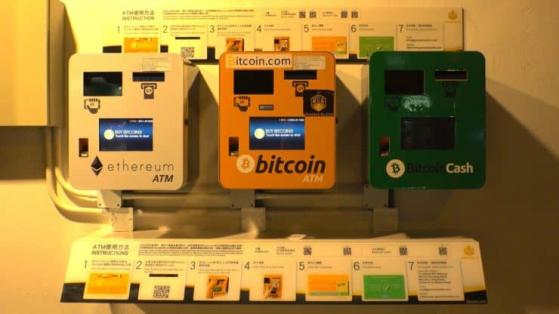Invezz.com - In a landmark move, the UK’s Financial Conduct Authority (FCA) has charged a man with unlawfully operating a network of cryptocurrency ATMs without proper registration.
This marks the regulator’s first criminal prosecution for activities involving physical crypto machines, signalling a tougher stance against unregulated digital asset transactions.
Olumide Osunkoya, 45, a London resident, faces charges for running multiple unregistered crypto ATMs that processed £2.6 million worth of transactions between December 2021 and September 2023.
Crypto ATMs allow users to exchange traditional money for cryptocurrency, operating similarly to standard bank ATMs.
However, according to the FCA, no crypto ATM operators are legally registered in the UK.
Illegal crypto ATMs and money laundering concerns
Crypto ATMs have become a growing point of concern for regulators, with the FCA stressing their potential links to illicit financial activities such as money laundering.
The agency emphasized that unregistered crypto ATMs can inadvertently contribute to global money laundering schemes by facilitating anonymous transactions with untraceable funds.
Therese Chambers, joint executive director of enforcement and market oversight at the FCA, stated,
“Our message today is clear. If you’re illegally operating a crypto ATM, we will stop you. If you’re using a crypto ATM, you are handing your money directly to criminals. Criminals can exploit crypto ATMs to launder money globally.”
The charges brought against Osunkoya include multiple offenses under the Money Laundering Regulations of 2017, the Forgery and Counterfeiting Act 1981, and the Proceeds of Crime Act 2002.
These charges cover operating crypto ATMs without FCA registration, creating false documents, and possessing criminal property.
Osunkoya is scheduled to appear before Westminster Magistrates’ Court on September 30, 2024.
FCA crackdown on illegal crypto ATMs
This criminal case comes on the heels of an FCA-led operation to disrupt illegal crypto ATM operations across the UK.
In collaboration with law enforcement agencies, the FCA inspected 34 locations suspected of hosting illegal crypto machines in 2023, successfully shutting down 26 of them.
Despite these efforts, the global popularity of crypto ATMs continues to rise, particularly in countries like the United States, which has installed more than 31,000 such devices.
While the FCA asserts that unregulated crypto ATMs can facilitate the laundering of illicit money, other developed economies have introduced regulations to prevent these machines from being exploited for illegal activities.
However, crypto ATMs remain a key target for scams and fraud.
The growing risk of crypto ATM scams
Crypto ATMs are also being used by scammers to steal money from unsuspecting users.
According to the Federal Trade Commission (FTC) in the United States, scams involving crypto ATMs have become increasingly common.
In 2023 alone, victims lost an estimated $110 million due to fraudulent schemes executed through these machines.
In the first half of 2024 itself, fraud losses at Bitcoin ATMs or BTMs topped $65 million, and this likely to only reflect a fraction of the actual harm as a vast majority of frauds are not reported, FTC said.
Emma Fletcher, a senior data researcher at the FTC, explained that scammers have ramped up their use of crypto ATMs as a method to defraud people.
“Scammers are using these machines as a way to take money from people more than we’ve seen in the past,” she told NBC News.
This growing trend of fraud highlights the need for stringent regulation of crypto ATMs to protect users and ensure that such machines are not exploited for criminal purposes.
Implications for the future of crypto ATM regulation
The outcome of the FCA’s case against Osunkoya could have wide-reaching implications for how cryptocurrency services are regulated in the UK.
If found guilty, the case may serve as a warning to others operating in the digital currency space without proper authorization.
The FCA’s aggressive stance against unregistered crypto ATMs signals that the regulator is committed to cracking down on illegal activities linked to digital assets.
As the number of crypto ATMs worldwide continues to rise, the FCA’s actions may set a precedent for stricter enforcement and regulation in the UK and beyond.
This article first appeared on Invezz.com
